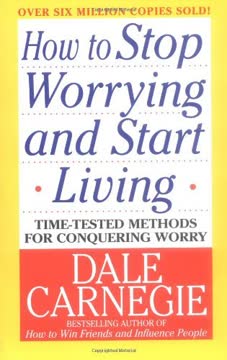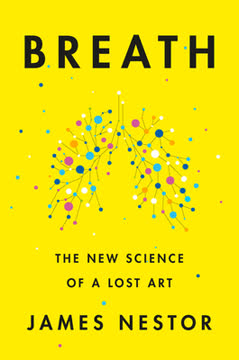Key Takeaways
1. Anger is a choice, not an automatic response to stress
Anger is a two-step process. It usually starts with stress and the subjective experience of arousal that stress of any kind generates.
Stress doesn't automatically lead to anger. The first step is experiencing stress, which can come from various sources such as emotional pain, physical discomfort, or frustrated desires. The second step involves choosing to respond with anger, often through trigger thoughts that blame others or magnify the situation. This choice is often unconscious, based on learned behaviors and past experiences.
Alternative responses exist. Instead of anger, one can choose from a range of coping strategies:
- Crying to release tension
- Exercising to burn off stress
- Engaging in intense work activity
- Using humor to reframe the situation
- Writing to express feelings
- Practicing relaxation exercises
- Verbalizing pain without blame
- Engaging in problem-solving activities
2. Recognize and combat trigger thoughts that fuel anger
Trigger thoughts can distort a situation, making it seem bigger and the child's behavior worse than it really is.
Identify common trigger thoughts. These thoughts often fall into three categories:
- Assumed intent (e.g., "You're doing this to annoy me")
- Magnification (e.g., "This is intolerable")
- Labeling (e.g., "You're so lazy/selfish/disrespectful")
Replace trigger thoughts with coping thoughts. When you notice these anger-inducing thoughts, consciously replace them with more balanced, realistic perspectives. For example:
- Instead of "He's deliberately ignoring me," think "He might be preoccupied or didn't hear me"
- Replace "This is a disaster" with "This is frustrating, but I can handle it"
- Swap "She's so selfish" for "She has different needs and priorities than I do"
3. Use effective coping strategies to manage anger in the moment
Just as long as I keep my cool, I'm in control.
Implement immediate coping techniques. When you feel anger rising, use these strategies to regain control:
- Take deep breaths to calm your physiological response
- Use a mental time-out to distract yourself from the triggering situation
- Remind yourself of your coping thoughts (e.g., "I can handle this")
- Look for the right response instead of reacting impulsively
- Focus on problem-solving rather than venting or blaming
Practice response choice rehearsal (RCR). This technique involves preparing and practicing specific responses to common anger-provoking situations. RCR includes six prelearned responses:
- Express a specific need
- Negotiate
- Self-care
- Get information
- Acknowledge the other person's position
- Withdraw if necessary
4. Practice relaxation techniques to reduce overall stress levels
Chronic anger does not make you strong and safe. It weakens you.
Incorporate regular relaxation practices. Chronic anger takes a toll on your physical and mental health. To counteract this, engage in regular relaxation exercises:
- Progressive muscle relaxation
- Deep breathing exercises
- Guided imagery
- Meditation or mindfulness practices
- Yoga or gentle stretching
Create a relaxation routine. Set aside time each day for relaxation exercises. Even short periods of practice can significantly reduce overall stress levels and make it easier to manage anger-provoking situations when they arise.
5. Implement assertive communication to resolve conflicts
Assertive communication allows you to express feelings, thoughts, and wishes, and to stand up for your rights and limits without violating the rights of others.
Use the three-part assertive statement. When communicating in potentially conflictual situations, structure your message as follows:
- "I think..." (objective description of the situation)
- "I feel..." (your emotional reaction)
- "I want..." (your specific request for change)
Practice active listening. Assertive communication is a two-way street. Improve your ability to understand others by:
- Paying full attention to the speaker
- Reflecting back what you've heard to ensure understanding
- Asking clarifying questions
- Acknowledging the other person's feelings and perspective
6. Develop problem-solving skills to address underlying issues
Problem solving means that you are dealing with the root problem.
Follow the IDEAL problem-solving model:
- Identify the problem
- Develop alternatives
- Explore the consequences
- Act on a plan
- Look at the results
Focus on underlying needs. Often, anger arises from unmet needs or conflicting desires. Instead of fixating on the surface issue, try to identify and address the root causes of conflicts.
Brainstorm creative solutions. Generate multiple possible solutions before evaluating them. This increases the likelihood of finding a mutually satisfactory resolution.
7. Break the cycle of domestic violence and abuse
Abuse occurs any time someone is induced to act in ways that they would not otherwise have chosen to act, by violence, threats, or intimidation.
Recognize the signs of abuse. Abuse can be physical, emotional, or psychological. It often follows a cycle of tension-building, explosion, and remorse.
Prioritize safety. If you're in an abusive relationship:
- Develop a safety plan, including a place to go and essential items to take
- Seek help from domestic violence hotlines, shelters, or trusted friends/family
- Consider legal options such as restraining orders
Seek professional help. Both victims and abusers can benefit from counseling to address underlying issues and develop healthier relationship patterns.
8. Manage anger in parenting to foster healthy relationships with children
Frequent and intense parental anger helps shape a child's future behavior, academic success, social functioning, ability to be empathetic, and ability to establish and maintain healthy adult relationships.
Understand developmental stages. Many frustrating behaviors are normal parts of child development. Educate yourself about age-appropriate expectations to reduce unnecessary anger.
Use positive reinforcement. Focus on praising and rewarding good behavior rather than punishing bad behavior. This approach is more effective and less likely to provoke anger.
Implement consistent, reasonable consequences. When discipline is necessary, use logical consequences that are proportionate to the misbehavior and consistently applied.
Model healthy anger management. Children learn by example. Demonstrate appropriate ways to handle frustration and resolve conflicts.
Last updated:
FAQ
What's When Anger Hurts: Quieting the Storm Within about?
- Focus on Anger Management: The book provides practical techniques for managing anger and its effects on relationships and health, emphasizing that anger is often a choice.
- Cognitive Behavioral Approach: Authors Matthew McKay, Peter D. Rogers, and Judith McKay use cognitive behavioral therapy principles to help readers identify and change anger-triggering thoughts.
- Comprehensive Techniques: It includes strategies like anger inoculation, problem-solving, and effective communication to help individuals cope with anger healthily.
Why should I read When Anger Hurts: Quieting the Storm Within?
- Practical Tools: Offers actionable exercises and techniques that can be immediately applied to daily life, making it valuable for anyone struggling with anger.
- Improved Relationships: Learning to manage anger can enhance interpersonal relationships, reduce conflict, and foster healthier communication patterns.
- Health Benefits: Discusses the physiological costs of anger, linking chronic anger to health issues like hypertension, motivating readers to seek change for well-being.
What are the key takeaways of When Anger Hurts: Quieting the Storm Within?
- Anger is a Choice: Emphasizes that anger is not automatic but a choice influenced by thoughts and beliefs, empowering individuals to control their reactions.
- Coping Strategies: Provides a variety of coping strategies, including relaxation techniques, cognitive restructuring, and problem-solving methods.
- Responsibility for Emotions: Encourages taking personal responsibility for feelings and reactions, shifting focus from blaming others to understanding personal needs.
What are the best quotes from When Anger Hurts: Quieting the Storm Within and what do they mean?
- “Anger begets anger.”: Highlights the cyclical nature of anger, suggesting that expressing anger often leads to more anger in others.
- “You are responsible for the quality of your life.”: Emphasizes personal accountability, encouraging readers to recognize their power to change circumstances and emotional responses.
- “People do what is reinforcing for them to do.”: Underscores that behavior is often driven by personal needs and motivations, aiding in understanding others' actions.
How can I use the techniques in When Anger Hurts: Quieting the Storm Within?
- Practice Daily Exercises: Engage in exercises like keeping an anger journal to track triggers and responses, helping identify patterns and develop awareness.
- Implement the IDEAL Model: Use the IDEAL model (Identify, Develop, Explore, Action, Look) to systematically address problems that trigger anger.
- Incorporate Relaxation Techniques: Regularly practice methods like deep breathing and progressive muscle relaxation to manage stress levels and reduce anger responses.
What is the Two-Step Model of Anger in When Anger Hurts: Quieting the Storm Within?
- Understanding Anger Triggers: Posits that anger arises from stress and trigger thoughts, helping individuals understand the root causes of their anger.
- Choice in Response: Emphasizes that individuals can choose their response to anger by altering their thoughts, leading to healthier emotional regulation.
- Practical Application: By identifying specific trigger thoughts, readers can work on reframing these thoughts to prevent anger from escalating.
What is anger inoculation as described in When Anger Hurts: Quieting the Storm Within?
- Gradual Exposure: Involves gradually exposing oneself to anger-inducing scenarios while practicing coping strategies to build resilience.
- Worksheets for Practice: Provides worksheets to help create detailed anger scenes, identify trigger thoughts, and develop coping thoughts.
- Repetition for Mastery: Encourages repeated practice of scenarios to reinforce coping skills and reduce the likelihood of explosive anger.
How does When Anger Hurts: Quieting the Storm Within address anger in relationships?
- Interpersonal Costs: Discusses how anger can damage relationships, leading to isolation and decreased support from friends and family.
- Effective Communication: Emphasizes using effective communication strategies to express needs without resorting to anger.
- Coping with Conflict: Provides tools for managing conflicts constructively, encouraging focus on problem-solving rather than blame.
What is response choice rehearsal (RCR) in When Anger Hurts: Quieting the Storm Within?
- Structured Responses: Involves pre-learning specific responses to anger-provoking situations, allowing adaptive reactions.
- Active and Passive Responses: Outlines both active responses (like expressing needs) and passive responses (like seeking information).
- Practice Through Visualization: Encourages visualizing scenarios and practicing responses to reinforce skills needed to cope with anger.
How can I apply the techniques from When Anger Hurts: Quieting the Storm Within to my parenting?
- Recognizing Stressors: Emphasizes recognizing stressors like fatigue or feeling rushed and planning accordingly.
- Using Coping Thoughts: Encourages replacing trigger thoughts with coping thoughts that acknowledge a child’s developmental stage.
- Assertive Communication: Provides a framework for assertive communication, helping parents express feelings and expectations clearly.
What are some common trigger thoughts that lead to anger in parenting according to When Anger Hurts: Quieting the Storm Within?
- Assumed Intent: Thoughts like “You’re doing this to annoy me” can escalate anger by assuming negative intentions.
- Magnification: Statements such as “This behavior is intolerable” exaggerate situations, increasing frustration.
- Labeling: Using negative labels like “You’re so lazy” can damage self-esteem and provoke conflict.
How does When Anger Hurts: Quieting the Storm Within address the issue of spouse abuse?
- Cycle of Violence: Discusses the cycle of violence, including phases of tension building, explosion, and remorse.
- Understanding Responsibility: Emphasizes that while the abuser is responsible, both partners contribute to relationship dynamics.
- Support Resources: Provides information on seeking help, including counseling and support groups for victims and perpetrators.
Review Summary
When Anger Hurts receives mostly positive reviews, with readers praising its practical approach to anger management. Many find the book insightful, offering effective communication methods and tools for controlling temper. Readers appreciate the emphasis on personal responsibility and understanding underlying emotions. Some critique the book's stance on "shoulds" and societal protocols. Overall, reviewers recommend it for those dealing with anger issues or seeking to improve interpersonal skills. The book is seen as transformative when approached as a workbook and applied diligently.
Similar Books










Download PDF
Download EPUB
.epub digital book format is ideal for reading ebooks on phones, tablets, and e-readers.









